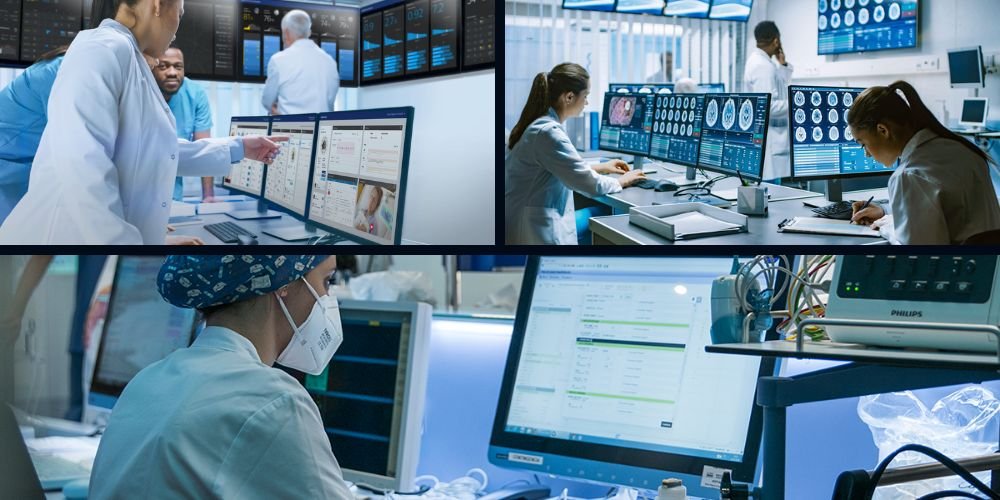In the dynamic healthcare landscape, predictive analytics has emerged as a powerful tool, leveraging data-driven insights to enhance patient care, streamline operations, and improve overall health outcomes. This article explores the significance of predictive analytics in healthcare, its evolution, applications, challenges, and its transformative impact on reshaping the future of medical practices.
Significance of Predictive Analytics in Healthcare
Predictive analytics in healthcare is a paradigm-shifting approach that harnesses data to anticipate future events, identify trends, and make informed decisions. By leveraging advanced statistical algorithms and machine learning techniques, healthcare professionals can proactively address patient needs, optimize resource allocation, and mitigate potential risks, ultimately improving patient outcomes.
Early Disease Detection and Prevention
One of the immediate applications of predictive analytics in healthcare is early disease detection and prevention. Predictive models can identify individuals at risk of developing certain conditions by analyzing patient data, including electronic health records (EHRs), diagnostic test results, and lifestyle information. This proactive approach enables healthcare providers to intervene early, implement preventive measures, and offer personalized interventions.
Hospital Readmission Reduction
Predictive analytics plays a crucial role in reducing hospital readmissions by identifying factors that may contribute to patients returning to the hospital shortly after discharge. Analyzing historical patient data enables healthcare providers to predict who is at higher risk of readmission, enabling targeted interventions such as personalized care plans, follow-up appointments, and remote monitoring.
Resource Optimization and Operational Efficiency
Healthcare organizations leverage predictive analytics to optimize resource allocation and enhance operational efficiency. By forecasting patient admission rates, identifying peak times, and predicting resource demands, hospitals can better manage staffing levels, allocate resources strategically, and ensure a more streamlined and cost-effective healthcare delivery.
Evolution of Predictive Analytics in Healthcare
The evolution of predictive analytics in healthcare is closely tied to advancements in data collection, computational capabilities, and the integration of electronic health records.
Integration of Electronic Health Records (EHRs)
The widespread adoption of electronic health records has catalyzed the evolution of predictive analytics in healthcare. Digitizing patient records allows for the aggregation of vast amounts of data, providing a comprehensive view of an individual’s health history and enabling more accurate predictive modeling.
Advanced Machine Learning Algorithms
The development of advanced machine learning algorithms marks the evolution of predictive analytics. These algorithms, including decision trees, neural networks, and ensemble methods, enable more sophisticated healthcare data analysis, allowing for better predictions and insights into patient outcomes.
Real-Time Data Processing and IoT Integration
Advancements in real-time data processing and the integration of Internet of Things (IoT) devices contribute to the evolution of predictive analytics. Real-time monitoring of patient vitals, wearable devices, and health sensors provides a continuous stream of data, allowing healthcare providers to make timely predictions and interventions.
Applications of Predictive Analytics in Healthcare
Predictive analytics has diverse applications across healthcare domains, influencing clinical decision-making, public health initiatives, and patient engagement.
Personalized Treatment Plans
Predictive analytics enables the development of personalized treatment plans by analyzing patient data to identify the most effective interventions. Tailoring treatment strategies based on individual characteristics, genetics, and historical data improves patient outcomes and reduces the risk of adverse reactions.
Population Health Management
Healthcare organizations use predictive analytics for population health management, identifying trends and patterns within larger patient populations. This approach allows for targeted interventions, preventive measures, and resource allocation to address specific health challenges within communities.
Fraud Detection and Revenue Cycle Management
In healthcare finance, predictive analytics aids in fraud detection and revenue cycle management. Analyzing billing data and patterns can identify anomalies and potential fraudulent activities and optimize financial processes, ensuring accurate reimbursement and reducing financial losses.
Challenges in Predictive Analytics in Healthcare
While predictive analytics holds immense potential, it also faces challenges related to data quality, ethical considerations, and the need for interpretability in complex healthcare decision-making.
Data Quality and Integration
The effectiveness of predictive analytics relies on the quality and integration of diverse healthcare datasets. Incomplete or inaccurate data can lead to flawed predictions and impact the reliability of the models. Ensuring data quality and seamless integration across different healthcare systems is an ongoing challenge.
Ethical Considerations and Patient Privacy
Predictive analytics raises ethical considerations regarding patient privacy and the responsible use of sensitive health data. Striking a balance between extracting valuable insights and safeguarding patient privacy is crucial for maintaining trust and complying with ethical standards and regulations.
Interpretability and Explainability
Complex predictive models, especially those based on machine learning, may lack interpretability and explainability. Healthcare professionals and patients must understand the rationale behind predictions to trust and act upon them. Developing interpretable models that provide transparent explanations is an ongoing challenge in the field.
Future Directions of Predictive Analytics in Healthcare
The future of predictive analytics in healthcare holds exciting possibilities, including advancements in precision medicine, increased collaboration, and the integration of artificial intelligence.
Advancements in Precision Medicine
Predictive analytics will play a central role in advancing precision medicine. As technology evolves, predictive models will become more refined, incorporating genomics, patient lifestyle data, and real-time monitoring to tailor treatments at an individual level and optimize therapeutic outcomes.
Interdisciplinary Collaboration and Data Sharing
The future of predictive analytics in healthcare involves increased interdisciplinary collaboration and data sharing. Collaborative efforts among healthcare providers, researchers, and technology experts will lead to the development of more comprehensive predictive models that leverage diverse data sources.
Integration of Artificial Intelligence
Integrating artificial intelligence, including machine learning and natural language processing, will enhance predictive analytics capabilities. Advanced algorithms will enable more accurate predictions, automated decision-making, and the extraction of valuable insights from unstructured information sources such as clinical notes and medical literature.
Conclusion
Predictive analytics in healthcare represents a transformative approach to decision-making, resource allocation, and patient care. By harnessing data-driven insights, healthcare experts can anticipate and address challenges, ultimately enhancing patient outcomes and the efficiency of healthcare delivery. As the field continues to evolve, the responsible application of predictive analytics holds the potential to revolutionize healthcare, providing personalized, efficient, and effective solutions for individuals and communities alike.





